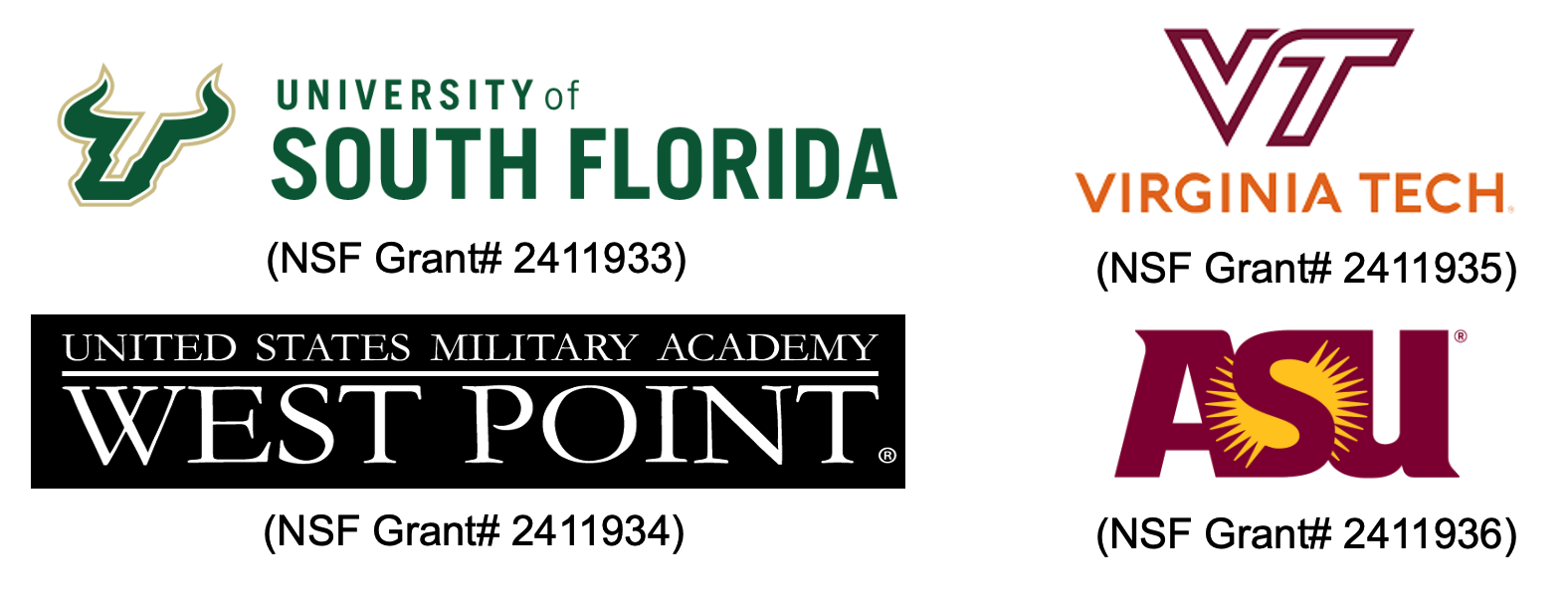Project Overview
Teamwork is an integral part of engineering curricula. However, underrepresented students, particularly Black and Latinx students, tend to encounter adverse team experiences beyond those generally encountered by all students. A team-based learning environment that values each individual student’s assets can potentially decrease occurrences of negative team experiences rooted in racial bias, increase belongingness, and provide students with teamwork skills to succeed in the increasingly global job market.
The goal of this collaborative project is to identify and understand pedagogical strategies that promote equity in team experiences for Black and Latinx students in engineering and computer science classrooms. The research team will use an asset-based approach, drawing upon students’ cultural, behavioral, and cognitive assets, to inform team compositions that foster cooperation, collaboration, and inclusion, leading to equitable outcomes in team-based assignments. The research team will perform a quasi-experimental, quantitatively driven, sequential, mixed methods design in three phases guided by a socioecological framework. The unit of analysis will focus on undergraduate teams formed in engineering and computer science courses that assign team-based assignments.
Project Goals
The main goal of this project is to identify and understand students’ behavioral and cognitive assets that positively impact working relationships among majority and Black and Latinx students engaged in team-based STEM assignments and use this information to guide team formation, improve team dynamics, and address systemic racial bias to build more racial equity on engineering teams. Our research questions are:
- What behavioral, cultural, and cognitive assets inform student team formation to promote equitable outcomes in engineering courses?
- To what extent and in what ways does understanding one’s personal as well as team members behavioral, cultural, and cognitive assets impact team development and achievement of equitable outcomes in engineering courses?
- What role do asset mapping and implicit bias training play in the achievement of equitable outcomes in engineering courses?
To address these research questions and achieve the main goal of this project, we have established several corresponding research aims. Our research aims are:
- To identify and categorize the factors that influence equitable outcomes in teams across race and ethnicity as (i) behavioral; (i) culturally relevant- assets, and (iii) cognitive;
- To determine how the identified factors can be operationalized and efficiently measured using an instrument administered to students
- To develop competing strategies regarding how the factors should be used to form equitable teams that consider the impact on students’ perceived belongingness, inclusion, mattering, and psychological safety while maintaining focus on traditional course-level learning outcomes and minimizing the variance across teams
- To identify a parsimonious set of factors and design and test the addition of these novel factors in commercially available team formation software to aid the formation of equitable teams
- To develop a protocol to train students how to work effectively on diverse teams including asset mapping and implicit bias training
Intellectual Merit
The discovered knowledge in this study will provide insights regarding the use of behavioral, culturally relevant knowledge, and cognitive assets in the formation of inclusive and equitable engineering student teams. Through the development of novel team formation approaches leveraging these new insights, we aim to create more inclusive and equitable classroom environments to help mitigate some of the challenges encountered in team-based undergraduate assignments. Among the few existing team formation tools known to the PIs from the literature, none consider students’ cultural assets and knowledge. In addition to traditional education outcomes measures, we seek to consider novel measures of team effectiveness such as students’ belongingness scores and perceived biases of teammates. Our project is a step towards transforming the system that students are entering by embracing the cultural assets that Black and Latinx students bring to the classroom environment and how these are communicated to their peers to establish better group working environments. This aims to improve overall learning experiences and increase the number of Black and Latinx professionals entering the STEM workforce.
Broader Impacts
We anticipate that the broader impacts from our proposed research will: (1) improve STEM education; (2) broaden the participation of women, Black, and Latinx students in STEM; (3) improve the well-being of individuals in society, (4) and facilitate the development of a more diverse and competitive STEM workforce. We will seek to promote the adoption of the insights gained from the study in the existing CATME team formation software tool to assist faculty in establishing more equitable undergraduate engineering student teams. The findings and developed interventions will be disseminated through workshops for faculty at the participating institutions. The results of this study may improve postsecondary STEM education by increasing students’ awareness of their strengths, which can improve students’ confidence, self-efficacy, and ability to work effectively in diverse teams. Further, as the findings and resulting best practices are transferred to other courses and institutions, we anticipate a change in the mindsets of faculty using the tool in their perception of minoritized students. The proposed research aims to broaden the participation of Black and Latinx students in engineering by creating inclusive and equitable learning experiences that embrace their cultural assets.
Collaborators


